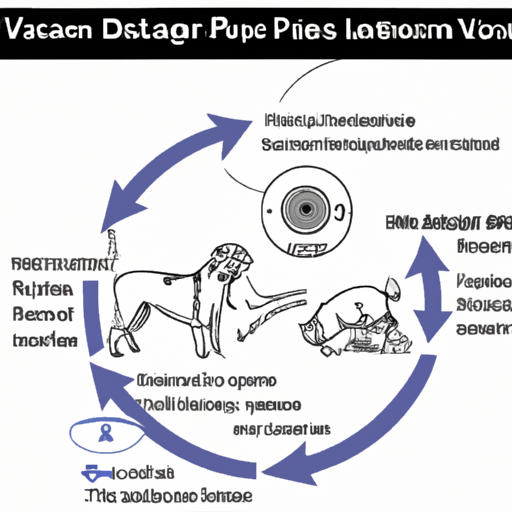Understanding IVDD
Intervertebral Disc Disease (IVDD) is a condition that can be incredibly debilitating for our beloved dogs. It refers to a disc rupture in the back, causing severe pain and even paralysis. As a caregiver, your role is pivotal in preventing this condition.
The Role of Genetics and Breed
Certain breeds are more susceptible to IVDD than others. These include Dachshunds, Beagles, and Bulldogs. However, IVDD can occur in any breed. It’s important to know your dog’s genetic predisposition to the disease to understand the level of risk and take preventative measures accordingly.
Ways to Prevent IVDD in Dogs
Prevention is always better than cure, especially when it comes to IVDD. Here are some things you can do:
-
Maintain a Healthy Weight: Overweight dogs are more prone to IVDD. Make sure your dog maintains a healthy weight to reduce strain on their spine.
-
Nutrition: Feed your dog a balanced diet. Good nutrition is essential for spinal health.
-
Exercise: Regular, gentle exercise can help keep your dog’s muscles strong and flexible, supporting their spine.
-
Avoid Strain: Prevent your dog from jumping on and off furniture. This can put unnecessary strain on their back.
Importance of Regular Vet Check-ups
Regular vet check-ups can help catch early signs of IVDD. Your vet can examine your dog’s back and gait to identify any potential issues.
| Check-up Frequency | Why It’s Important |
|---|---|
| Every 6-12 months | Early detection of potential issues |
| Immediate check-up if signs of discomfort or pain are noticed | To prevent the condition from worsening |
Frequently Asked Questions
Q: Can IVDD be cured?
A: There is no absolute cure for IVDD. However, it can be managed with medication, surgery, and physiotherapy.
Q: What are the symptoms of IVDD?
A: Symptoms include back pain, difficulty walking, and in severe cases, paralysis.
Q: Can IVDD be prevented?
A: While it’s not possible to prevent IVDD entirely, certain measures can significantly reduce the risk.
Q: What should I do if I suspect my dog has IVDD?
A: If you suspect your dog has IVDD, take them to a vet immediately. Early intervention can improve prognosis.
As a caregiver, your role is vital in safeguarding your dog’s health. By understanding the risks and taking proactive steps, you can help prevent IVDD and ensure your dog lives a long, happy, and healthy life.



